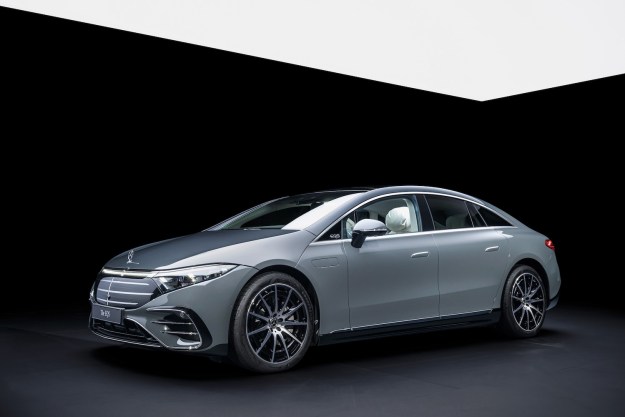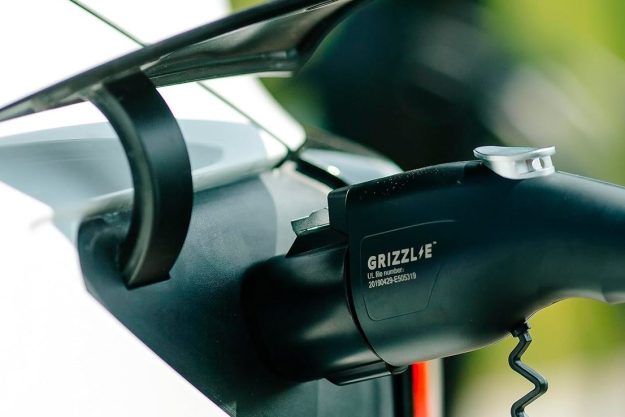The introductory ignition of future automotive drivetrain technologies, it would seem, are going to be fairly silent from here on out.
Time was, when automakers had a new powertrain technology, they unveiled their latest breakthrough with a loud roar and a cloud of smoke. Things have changed, though, as has the global climate.
From now on, state-of-the-art automotive technologies will be unveiled with a whisper and perhaps – at most – a cloud of steam.
Take the Toyota FCV Concept you see above, for example. Toyota says it’s a nearly production-ready version of the Japanese automaker’s mass-market hydrogen fuel cell vehicle slated to go on sale in 2015.
Designed to evoke the external aesthetics of both a catamaran and flowing water, the FCV Concept front end was penned to symbolize the “taking in air, emitting water” of the onboard hydrogen fuel cell.
Side bodylines are intended to convey air-to-water with flowing, liquid-like door shapes and a wave-motif fuel cap. The rear, however, reintegrates the catamaran form. To us, it looks like a Corolla with a taller Ferrari Enzo nose.
Powered by Toyota’s lightweight fuel cell stack (the thing that turns hydrogen into electricity), the FCV Concept can go approximately 310 miles (500 km) per tank. The two high-pressure onboard hydrogen tanks can be also be fully refilled in around three minutes, which, Toyota brags, is similar to a standard gasoline car.
Toyota doesn’t give any acceleration figures but does say that the FCV Concept’s fuel cell stack packs a power output density of 3 kW/l – more than twice the power output density of the current Toyota FCHV-adv that we drove in California.
This new fuel cell stack isn’t just better on paper; it’s also smaller and less expensive. Engineers also increased system voltage thanks to a high-efficiency boost converter, which is good because the prototype hydrogen cars we drove were a bit sluggish.
Ignoring the jumble of hydrogen-related language and the underwhelming exterior design, the Toyota FCV Concept is a very important car.
Hydrogen has long been an automotive pipedream.
Like the Prius before it, the FCV is that first essential step from concept into day-to-day reality. Imagine: By late next year, you’ll be able to go to your local Toyota dealer and buy a car – albeit for $50,000 – that will emit nothing from the tailpipe but steam.
The FCV Concept proves that, despite what Elon Musk has to say, hydrogen is here in a serious way.


